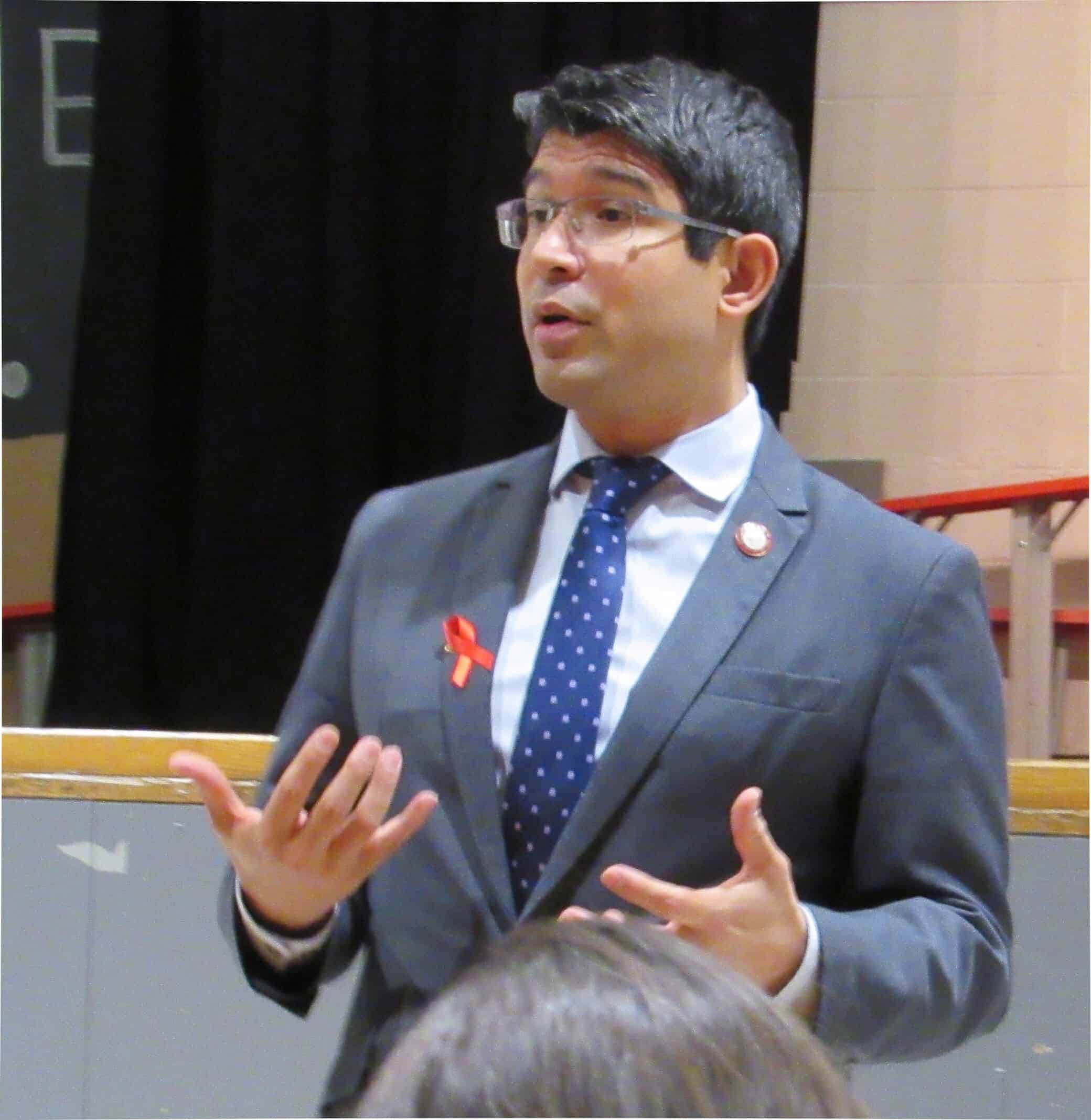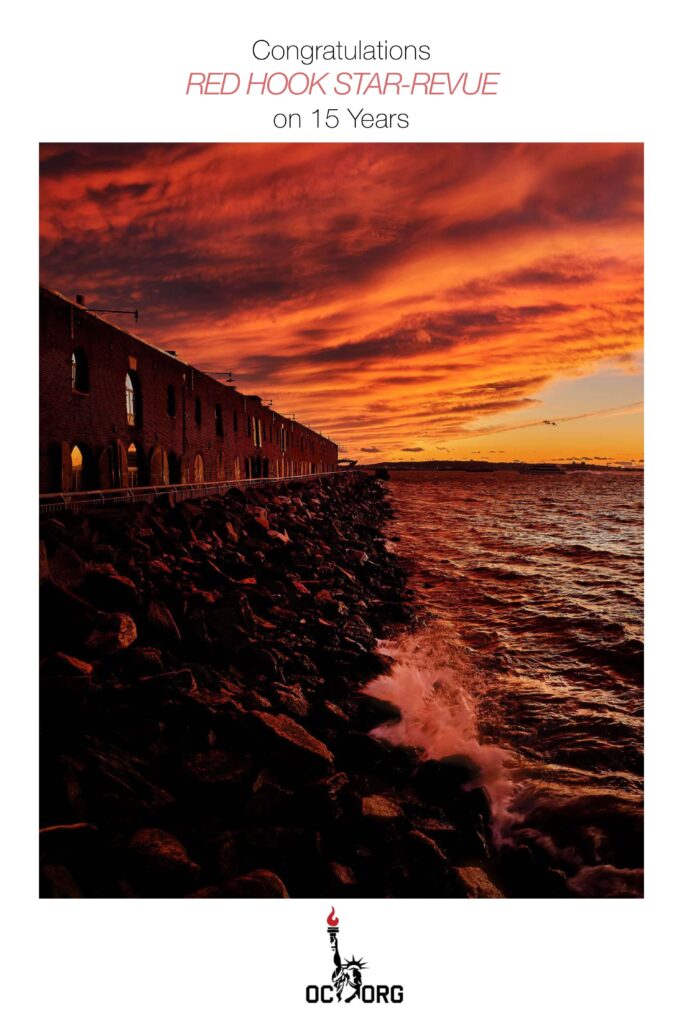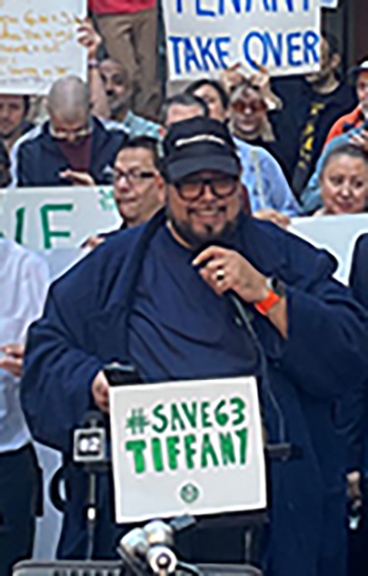Across the nation, federal, state, and city officials spent the month of March scrambling to prepare their constituencies for an unprecedented public health crisis, advocating for various policies to limit the spread of COVID-19 and to mitigate the impact of the resulting economic shutdown upon business owners, laid-off workers, and other affected populations. Between campaigns to encourage self-isolation and debates about how best to patch the holes in America’s social safety net, it’s been a busy time for government.
More than three weeks before Congress passed the largest economic stimulus in history ($3 trillion, with $500 million allocated for corporate bailouts), U.S. Representative Nydia Velázquez, whose district spans most of Red Hook, introduced the “Small Business Relief from Communicable Disease Induced Economic Hardship Act” in the House of Representatives, where she serves as Chair of the House Small Business Committee. Congresswoman Nita Lowey (D-NY) incorporated Velázquez’s bill into the “Coronavirus Preparedness and Response Supplemental Appropriations Act,” which President Donald Trump signed into law on March 6.
The law made businesses suffering from the pandemic eligible for emergency loans from the Small Business Administration’s Disaster Loans Program Account (“coronavirus shall be deemed to be a disaster”) and appropriated $20 million to cover the bureaucratic costs of doling out the funds. The legislation freed a total of $7 billion for low-interest mom-and-pop relief during the COVID-19 crisis – though Velázquez’s original bill had set the interest rate at zero.
“From the local barber shop or neighborhood café to the innovative technology startup, a pandemic can mean fewer customers, supply chain disruption, and workforce reductions,” Velázquez stated on March 4. “Just as the SBA helps small firms get back on their feet after a hurricane, wildfire or earthquake, the agency can be critical to helping local economies recover from this public health crisis.”
On March 23, Velázquez sponsored legislation to cancel fees for American travelers abroad who need evacuation services from the Department of State during the pandemic. When crises ground commercial flights, the US government may organize emergency homeward transport for stranded Americans for the cost of economy airfare. She called the fee an “unconscionable” burden upon individuals “who are desperate to get home and reunite with their families.” So far, HR 6376 has garnered 11 cosponsors.
The next day, Velázquez offered a new bill (HR 6484) to “provide community-based nonprofit feeding and anti-hunger groups with funding to partner with small and mid-sized restaurants to expand meal access and delivery for low-income and vulnerable populations during a pandemic or public health emergency.” Speaker Nancy Pelosi referred the bill to the House Committee on Agriculture.
Velázquez also has written but has not yet introduced the “Ensuring Affordable Housing Security During the Coronavirus Emergency Act,” which would suspend rent collection by public housing authorities and Section 8 landlords for the duration of the pandemic. In New York State, Governor Andrew Cuomo has banned evictions for 90 days, but tenants – including those in NYCHA – must continue to pay rent or else face possible trouble once the moratorium has ended. Under Velázquez’s bill, the federal government would cover rent payments for anyone who makes use of HUD’s or the USDA’s subsidized housing programs (“our most vulnerable neighbors,” as the congresswoman put it) until the coronavirus has receded.
Additionally, Velázquez – alongside congresswomen Alexandria Ocascio-Cortez (D-NY), Ayanna Pressley (D-MA), and Rashida Tlaib (D-MI) – sent a joint statement on March 22 to the Department of Justice and the Bureau of Prisons, advocating “compassionate release” for “incarcerated people who are elderly or have underlying health conditions, and who pose no risk to public safety” from federal prisons. As an administrative decision, the move would not require legislative action.
On March 30, the Attending Physician of Congress diagnosed Velázquez with presumed coronavirus infection based on a phone consultation. “My symptoms are mild at the present time and I am taking Tylenol for fever, and isolating myself at my home,” Velázquez said. She pledged to continue working remotely.
Three bills from Ortiz
Red Hook’s representative in the New York State Assembly also has been active during the crisis. On March 2, Assistant Speaker Felix Ortiz sponsored a bill appropriating $40 million for the state’s response to the COVID-19 outbreak. His legislation bestowed broad powers upon the governor in times of emergency, allowing him to “issue by executive order any directive necessary” to deal with a disaster.
Cuomo signed the act into law on March 3. “I am proud to take the lead,” Ortiz said, “in making sure this legislation was passed swiftly in the Assembly so we can get these emergency resources out the door right away to ensure we are best prepared in the coming days, weeks and months ahead.”
On March 24, Ortiz sponsored two more bills. One would require health insurers to provide coverage for patients to “immediately obtain an additional thirty-day supply of any current prescription” during a state emergency (with exceptions for “schedule II and schedule II controlled substances”). The other would ensure that the City School District of the City of New York would not lose out on financial aid from the state as a result of its closure owing to COVID-19.
Ortiz also urged the State Legislature to pass the New York Health Act, a longstanding proposal for the state to adopt a universal, single-payer healthcare system with no premiums, co-payments, or deductibles. “The best and most comprehensive way to fight the coronavirus is to ensure every single New Yorker has health insurance,” he commented.
Menchaca talks to mayor
In city government, Red Hook’s councilman Carlos Menchaca – who also serves many Latino and Chinese constituents in Sunset Park – has put an emphasis on protecting immigrant populations during the crisis. The New York City Council closed its City Hall offices indefinitely and suspended public hearings on March 16, but Menchaca has continued to use his position as a bully pulpit.
On March 16, he and Councilmember Ydanis Rodriguez of Washington Heights sent a letter to Mayor Bill de Blasio urging the decriminalization of the throttle-assist e-bikes used by food delivery workers. They emphasized that, during the coronavirus shutdown, restaurants (and many city residents) would rely heavily on the services of these cyclists.
De Blasio quickly acceded to the demand, announcing that the NYPD would temporarily suspend enforcement. Cuomo had vetoed a bill to legalize the delivery bikes last year.
Menchaca wrote to de Blasio again on March 19, co-authoring a letter with Councilmember Brad Lander of Park Slope and Public Advocate Jumaane Williams to call for “a directive to the NYC Department of Buildings to suspend all non-essential construction in New York City due to the COVID-19 crisis.”
They highlighted the need to “protect the health of construction workers, their families, and the general public” and asked the city “ensure that construction workers, and especially day laborers who are particularly vulnerable, receive compensation for work they have already performed.”
On March 10, New York City Emergency Management (NYCEM) created a text messaging service for city residents to receive coronavirus updates (text “COVID” to 692-692). Menchaca pushed to have the alerts made available in multiple languages. On March 13, NYCEM expanded the service to reach Spanish speakers (text “COVIDESP” to 692-692).
On behalf of 20 members of City Council, Menchaca sent a letter to Thomas R. Decker, New York Field Office Director for Immigration and Customs Enforcement (ICE), on March 17. The letter asked ICE to “halt all immigration enforcement in New York City until such time as the COVID-19 pandemic is resolved. This includes arrests and detentions, as well as releasing everyone from immigration detention facilities, or at minimum those who are elderly, pregnant, immunocompromised, or need medical treatment already.”
The councilmembers stressed that “immigration detention facilities, which are designed to hold as many human beings as possible, not preserve public health, are becoming incubators of the disease. That is a recipe for infection in the best of times. During a pandemic, it spells almost certain disaster.”
Author
Discover more from Red Hook Star-Revue
Subscribe to get the latest posts sent to your email.










